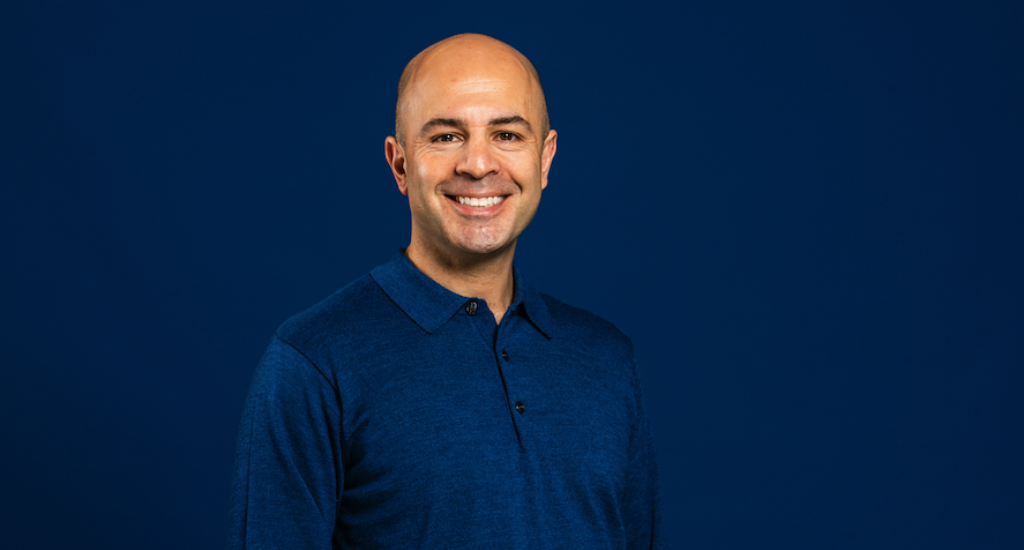News and publications
In the spotlight: Ali Najafbagy (4impact)
In the interview series 'VC in the spotlight,' we put venture capitalists in the spotlight. This time, we are interviewing Ali Najafbagy from 4impact about sustainability, tech4good, and geopolitical developments. 4impact supports ambitious software entrepreneurs who are making the transition to a sustainable world and delivering robust financial performance.
Why did you start 4impact?
Ali: "Because it is necessary and urgent. For example, Earth Overshoot Day is calculated by dividing the planet's biocapacity (the amount of ecological resources the Earth can generate in that year) by humanity's ecological footprint (humanity's consumption for that year) and multiplying it by 365. In 1971, this day fell on December 25th, and we had enough from our planet. In 2023, this day falls on August 2nd, and we actually need 1.7 Earths to meet our consumption. That is not sustainable, especially with a current population of approximately 8 billion people growing to around 9.5 billion by 2050 (UN). But there are innovative tech solutions, and that's what we invest in at 4impact capital."
After working at Goldman Sachs for seven years, Ali joined the investment company Mubadala in Abu Dhabi in January 2009. Unexpectedly, he encountered the double bottom line there: financial and impact return, particularly within Mubadala's green energy branch, Masdar. This created a snowball effect, leading him to become an angel investor in various European software startups that make a positive contribution to our planet, coupled with a strong business model. He also served as a venture partner for an English impact venture capital fund for several years.
Ali: "The urgency to fully focus on a more sustainable world increased as my awareness and startup portfolio grew, along with the realization that the double bottom line works within the software + impact combination. Setting up a fund is not something you do alone. 4impact capital co-founder Pauline Wink was in a similar phase. She gained a lot of experience within Goldman Sachs' tech venture capital team. We have known each other for over 20 years from our time in London, so the trust was there, and in 2018, we joined forces to establish 4impact capital. The sector has grown rapidly, and so have we. We now have a team of 9 people and are building our second fund to invest in the most promising ventures in Northwestern Europe, based on our three pillars: software + impact + strong financial returns."
How do you incorporate sustainability into your daily life?
Ali: "On three levels. First, by fully focusing on 4impact capital in terms of work. That's where I, we, make institutional and structural sustainable impact. The focus here is to make a positive impact on an international scale and achieve strong financial returns so that we can grow and support more entrepreneurs in their goals.
Second, through unpaid supervisory board positions in foundations with a focus on sustainability, such as Number 5 Foundation, and in cultural organizations like Het Nationale Theater. I'm also involved with FEM-START, the platform for female entrepreneurs, and Global People, the driver of diversity in business.
Finally, I'm engaged in sustainability at home and in my personal environment. My seven-year-old twin boys are my ultimate sustainability knights, and my wife is a social studies teacher—there is no escape."
You invest in tech4good organizations. What does tech4good entail?
Ali: "Startups that contribute positively to sustainability through smart software solutions and a strong business model. Within the software domain, with our second fund, we primarily invest in deeper tech software such as satellite IT, AI, and blockchain. Pauline and I are both engineers from Delft, as is our Entrepreneur in Residence, Victor Straatman.
A good example of a recent investment is InfoTiles in Norway. They help water companies detect and predict leaks faster through their software connected to sensors. According to the UN, there will be a 40% global water shortage by 2030. In Europe alone, we already lose 25% of our drinking water annually due to leaks. That is unacceptable. They also work with major wastewater companies. InfoTiles improves data quality at water companies by 30-50%, reduces OPEX by 25-40%, and reduces downtime by 40%. Companies pay for that, and it benefits society."
As an impact fund, what do you see as opportunities and potential threats from geopolitical developments? How do you respond to them?
Ali: "Geopolitical developments play an important role in closing borders and promoting a more inward-focused, protective attitude. Nationalization poses a significant threat, especially in Europe, as it fragments innovation. If we don't collaborate better in Europe, we will remain dependent on our larger Western and Eastern neighbors.
This is where 4impact capital sees a unique opportunity. We focus exclusively on software investments and sustainable solutions. These sectors offer several advantages: 1) They are less constrained by physical borders, 2) They are less sensitive to political developments, 3) They are both rapidly growing sectors that receive significant global attention; together, they reinforce each other. What is particularly special for me is that COP28 will take place in the United Arab Emirates this year, the place where my impact investing journey began 15 years ago."
What can we start doing tomorrow to move towards sustainability?
Ali: "Eating less meat and cycling more on an individual level is good, but only a collective and systematic approach can bring about positive change on a large scale. Within the framework of NVP [Dutch Venture Capital Association], this can be achieved by connecting with professional investors specializing in a specific sector. In our case, it's the combination of software and impact. A fund-of-fund like Carbon Equity specializes in selecting unique sustainable funds. In both cases, the focus is on market-based returns. This way, everyone can contribute to a sustainable world and make money, the double bottom line."



